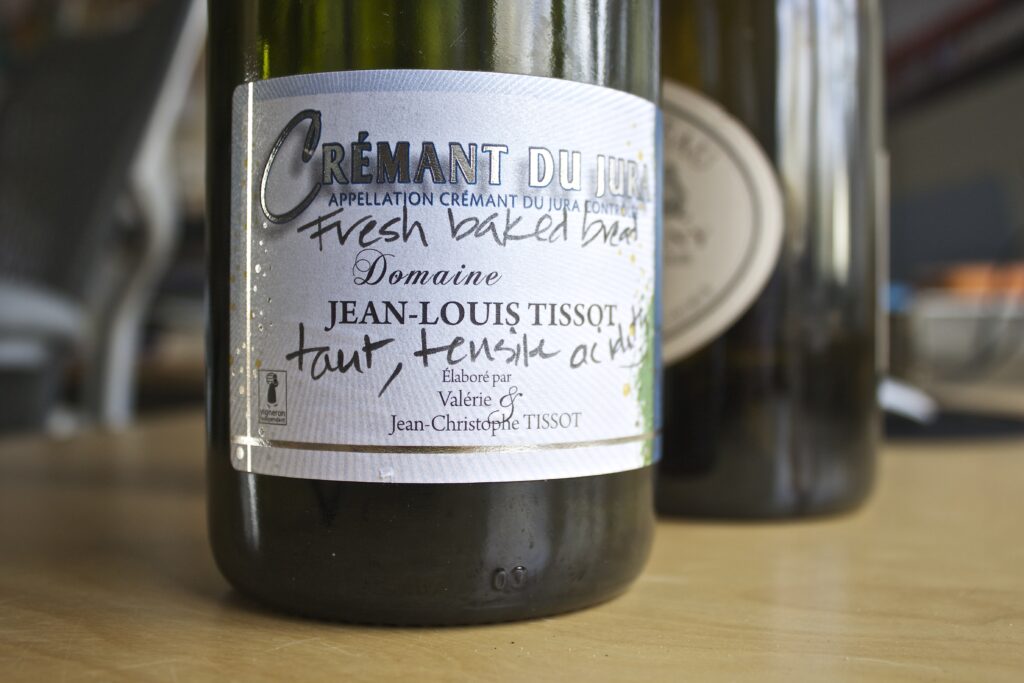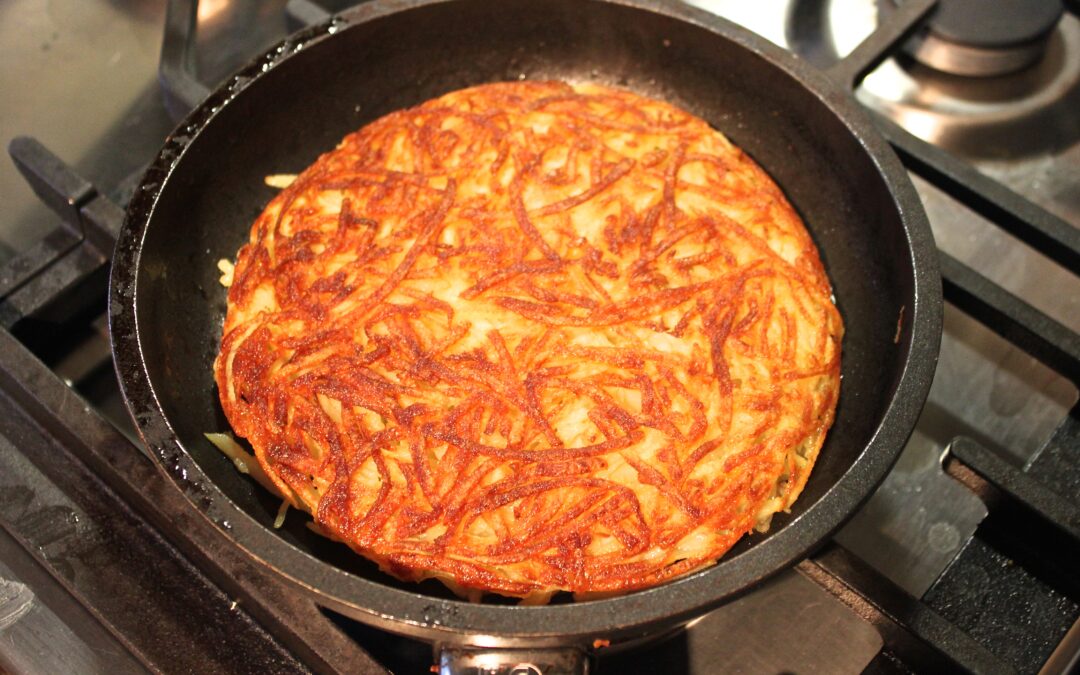Humour me if you will, and see if you can come up with the author:
“…a sort of convergence of all the senses – the awareness through touching, and also through smelling, hearing, seeing and tasting that something is ‘just right’…to know by pinching and judging the resilience of a lamb chop or a roast leg of lamb, when to remove it from the heat; to recognise the perfect amber of a caramel the second before it turns burnt and bitter: to feel the right fresh-heavy-cream consistency of a crêpe batter and the point of light but consistent airiness in a mousseline forcemeat that, having absorbed a maximum of cream to be perfect, would risk collapsing through any further addition…”
“A convergence of all the senses…” well you’ve probably guessed already that this is likely to be a cook of a very different stripe. Clearly not that cheeky scamp Jamie, spraying culinary clichés from an old aerosol can, or the expletive-ridden kitchen-devil, Gordon Ramsey, and somehow, with all its sensuality, it carefully fails to cross over into coquettish hyperbole so beloved of our raven-haired temptress, Nigella. But I think the prose does turn heads and it has consistently turned mine.
This is a cook who was never trained – the career of choice was that of a painter – and one who never worked as a professional chef. A cook who kept any flights of modern culinary fancy rooted in the simple home cooking of a rural France.
So in 2010, when the Observer Food Magazine chose to venerate the 50 Best Cookbooks Ever, our cook not only made it onto the podium, he was promptly handed the number one spot.
Richard Olney was an American who chose to live in France, first in Paris then in comparative isolation in rural Provence. He published The French Menu Cookbook in 1970 followed by his Simple French Food in 1974. There followed a stream of publications on both food and wine culminating in the epic Time-Life series of 28 volumes called The Good Cook/Techniques and Recipes, released periodically from the late ‘70’s to the early ‘90’s.

He died quietly on a warm summer’s afternoon in 1999 at his Provençal home. He was 72 and had launched a quiet culinary revolution both here and in the United States. Dip into any of his books and you will realise that revolution continues still.
Ironically he may well be held responsible for the modest resurgence in France of it’s own lost culinary ideal too, that of many home-cooked rural dishes – la cuisine de bonne femme.
It’ll need some pushback though, with around one and a half thousand McDonald’s outlets now serving 45 million French customers every single week, there needs to be a lot of omelettes aux fine herbes or Daube à la Provençale provided in order to keep pace. Had Olney not chosen to have his ashes strewn over his cherished vegetable garden in Solliès-Toucas, I’m sure he’d be spinning today.
On the subject of Daubes (stews, ragoûts, sautés etc) Olney’s summary is quietly masterful “Stews form the philosophical cornerstone of French family cooking: they embody – or spark – something akin to an ancestral or racial memory of farmhouse kitchens – of rustic tables laid by mothers or grandmothers”. As we never cook alone, I have long warmed to Richard’s idea of a “philosophical cornerstone” re-purposed for my own kitchen. It’s so very difficult to find one in McDonalds.
I frequently refer to Olney, either to work methodically through an entire cornerstone recipe or simply to garner tips on everything from tricky butchery to emergency soufflé assistance. Simple French Food is a book that seems to touch most human nerves – offering complete security, a sense of authenticity (as far as that is possible) and above all providing you with a comforting and enriching period of time at the stove-face. And a desirable payback – the final result will make everyone else feel a little enriched too.
What made me re-visit Olney’s Simple French Food on this occasion was a line in Julian Barnes hilarious collection of articles; The Pedant in the Kitchen (2003) which cited Olney’s Pommes Paillasson as “… the recipe alone is worth the price of the book”.
If truth be told, I have never felt completely at ease making Latkes, Rösti or any other variant of the potato pancake that has managed to circle our globe, so a Paillasson (translated as a thin straw mat) did not appear to provide a groundswell of immediate confidence. But given that I am unconditionally at home with both Barnes and Olney, I overcame my tuber-shredding anxiety and reached for the mercifully few ingredients – potatoes and butter. If ever Aristotle earned a place at the table with his declaration “the whole is greater than the sum of its parts”, then you’ll find yourself adding another chair after making this delicious dish.
I give you Olney again from Simple French Food –
One of my preferred garnishes for grilled or roast meats, or fowl, is a potato paillasson; a mass of potatoes passed through the medium blade of a Mouli-julienne, well rinsed in a couple of waters, rapidly drained, spread out on a towel, rolled tightly up, squeezed dry, and packed into a heated omelette pan containing lots of butter, cooked covered over a low flame for 20 minutes until the bottom is golden crisp, flipped onto a plate and slipped back into the pan to which a bit more butter has been added and cooked uncovered for another 20 minutes before serving.
But if you wanted a fast action, real time display, you could try my favourite comedy Frenchman, Chef Michel Dumas, surrounded by a kitchen arsenal that makes the French revolution look like a peace march – he’s a hoot!
Wine thoughts
Selecting a wine to accompany potatoes depends entirely on what else is on the plate.
However if you chose to have this dish as a lunchtime treat, with little else save a green salad or some charcuterie, I would head straight for one of France’s exciting Crémants – the title of a style of sparkling wine made beyond the Champagne region. Crémant d’Alsace, du Jura, de Bourgogne, de Die or de Loire, all fruitful wines, full of verve and refreshing energy. A glugging sparkler, or Glou-Glou in French, set at a modest outside table, with pommes paillasson and salade composé, creates a convergence of many of my senses too.


